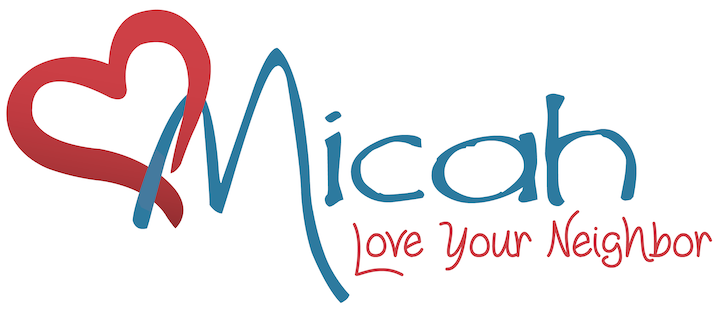A pint of Chunky Monkey sat in my passenger seat. My friend in need could barely eat and didn’t have much life left in him, but he had consistently dreamed of one final bite of that banana-fudge delight.
I knew he was about to die, and I was glad that Micah had been able to facilitate his entry into a safe comfortable place. But I wasn’t prepared to be too late.
I was headed toward the nursing home, proud to be the carrier of this gift that I was sure would make him feel valued and important in his final days. Then my phone rang.
My friend, Michael, had passed away that morning. His family who he had been estranged from for many years was there with him and would be preparing his burial. I was glad for that, but as I watched the ice cream melt away in the seat next to me I was so disappointed.
Michael would be the first of many Micah friends who would move on from this world under our watch. I wept for him, not just because I had really wanted him to get that ice cream. I legitimately cared for him. I couldn’t fix the path his life had taken. I couldn’t make him well again, but I could honor his human existence. Ice cream was my way of letting him know, despite everything, he still mattered.
In many ways, death worked out ok for Michael. He’d have a funeral, an obituary and people to remember him, which I would soon learn was more than many others would get. Too many times, since has Micah found itself in the position of searching for next of kin. Plenty of times, we’ve seen our friends go unclaimed and left to the responsibility of the state to bury. Sometimes we find someone, but the bridges that have been burned are often such that investment in final arrangements are usually minimal.
I used to keep count of how many we had lost, but the numbers have grown too numerous. Thanks to the Micah respite house, the community’s housing first approach and many other efforts to prioritize services for the most vulnerable homeless, there are less and less who die with no place to go. But when your theory about ending homelessness has to do with recreating a support network for people, you tend to engage in meaningful ways. You become friends who care about the things that happen to one another.
The death of a Micah friend in need isn’t just the loss of another client. It isn’t one less need to be concerned with. It’s a loss of another valuable member of the family.
As the holidays approached this year, many people were thinking about those they loved who were no longer with them. One, of which, was Michael’s mother who sent a donation in her son’s honor. Still, many years after his death, she remembered our willingness to love her son how she would at a time when she could no longer help him.
So, I got to thinking. Those many years ago, I was so disappointed in my failure to make it in time to let Michael know he was valued. Perhaps, I considered, I had been so caught up in the end of his story, that I had missed the beginning.
Our street homeless look so weathered, sick and tired. Sometimes they are so smelly or scary that its easy to believe there is nothing left. Their lives appear broken, irreparable and seemingly lost to any great good that the rest of us could possible come up with.
The problem is, in the moment we meet a person living on the street, we are only experiencing the end of a story. We missed the beginning, and its easy to forget that the novel of our lives is made up of many stories, multiple beginnings and lots of endings. If we decide that there is only one end to a story, there is no room for next chapters, the sequels are cancelled and the seeds of new beginnings are never nurtured enough to grow.
It really isn’t our job to decide when the story is over. It is only our job to be the best representation of a holy people through whatever beginnings and ends there may be.
As we hear twice in the book of Revelation, “Jesus is the Alpha and the Omega, the first and the last, the beginning and the end.” Free will is what happens in between.
If we want to participate in anything bigger than ourselves and if we want the circle of life to continue, the choices we make in the middle of the story must reconcile not divide us from one another.
I can’t tell you how many times a person ends up in our homeless system accompanied by a desperate call from a family member.
“I can’t believe that I’m allowing this person I love to need your services,” they usually say. “I don’t know what else to do, but I’ll do anything I can to help you with what they need.”
It would be so easy to write off a person whose own family couldn’t even get through to them. But the truth is just the opposite. Without God, an Omega is just an Omega–a letter and the tail end of a series of others that started with Alpha. But with God, we will always see the worst of Omegas and find the new Alpha within.
There wasn’t a lot we could do for Michael, and I certainly didn’t do my part on the ice cream front. But when the time came for him to leave this earth, our choice to honor whatever alphas he had left reconciled his last omega in a way that brought peace to him and new beginnings to his family.
